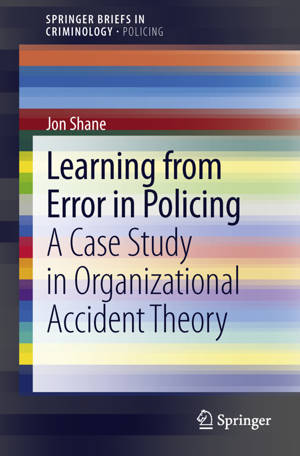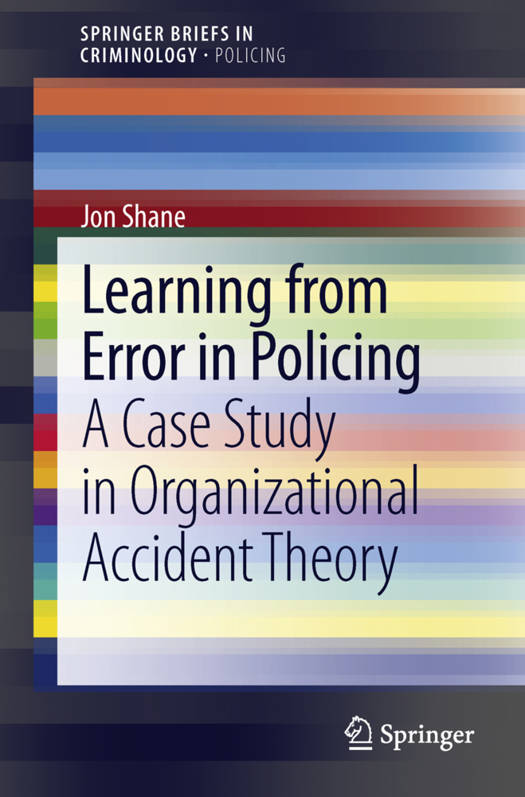
Bedankt voor het vertrouwen het afgelopen jaar! Om jou te bedanken bieden we GRATIS verzending (in België) aan op alles gedurende de hele maand januari.
- Afhalen na 1 uur in een winkel met voorraad
- Gratis thuislevering in België vanaf € 30
- Ruim aanbod met 7 miljoen producten
Bedankt voor het vertrouwen het afgelopen jaar! Om jou te bedanken bieden we GRATIS verzending (in België) aan op alles gedurende de hele maand januari.
- Afhalen na 1 uur in een winkel met voorraad
- Gratis thuislevering in België vanaf € 30
- Ruim aanbod met 7 miljoen producten
Zoeken
€ 62,95
+ 125 punten
Omschrijving
While the proximate cause of any accident is usually someone's immediate action-- or omission (failure to act)--there is often a trail of underlying latent conditions that facilitated their error: the person has, in effect, been unwittingly "set up" for failure by the organization. This Brief explores an accident in policing, as a framework for examining existing police practices. Learning from Error in Policing describes a case of wrongful arrest from the perspective of organizational accident theory, which suggests a single unsafe act--in this case a wrongful arrest--is facilitated by several underlying latent conditions that triggered the event and failed to stop the harm once in motion. The analysis demonstrates that the risk of errors committed by omission (failing to act) were significantly more likely to occur than errors committed by acts of commission. By examining this case, policy implications and directions for future research are discussed. The analysis of this case, and the underlying lessons learned from it will have important implications for researchers and practitioners in the policing field.
Specificaties
Betrokkenen
- Auteur(s):
- Uitgeverij:
Inhoud
- Aantal bladzijden:
- 91
- Taal:
- Engels
- Reeks:
Eigenschappen
- Productcode (EAN):
- 9783319000404
- Verschijningsdatum:
- 29/05/2013
- Uitvoering:
- Paperback
- Formaat:
- Trade paperback (VS)
- Afmetingen:
- 156 mm x 234 mm
- Gewicht:
- 158 g

Alleen bij Standaard Boekhandel
+ 125 punten op je klantenkaart van Standaard Boekhandel
Beoordelingen
We publiceren alleen reviews die voldoen aan de voorwaarden voor reviews. Bekijk onze voorwaarden voor reviews.









